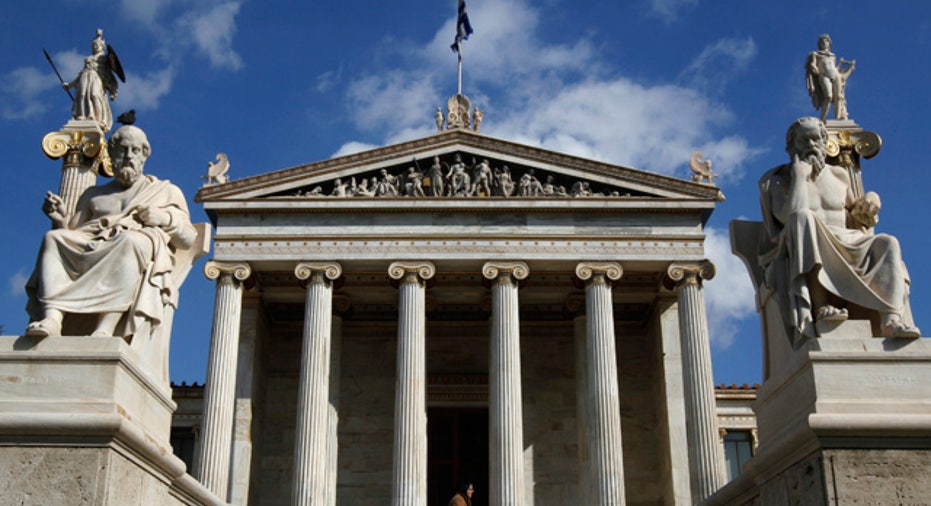Greece, EU/IMF at Odds Over Deficit; Pause Talks

Talks between Greece and international inspectors on whether it has met conditions for a new aid tranche have been put on hold, officials said on Friday, after disagreements over why and by how much its deficit cuts programme has fallen behind schedule.
The pause in discussions -- a clear sign of tension between the debt-choked nation and its EU/IMF/ECB troika of lenders that hit sentiment on European markets -- had not been planned.
The International Monetary Fund had initially said it wanted to wrap things up by Sept 5.
Finance Minister Evangelos Venizelos said the talks had not been suspended and would resume on Sept 14, after technical experts had had a chance to study relevant data.
Structural reforms needed to be accelerated as Greece's economy would contract by around 5% this year and likely stay in recession in 2012 too, affecting its ability to hit its fiscal targets, he told a news conference.
The government and its international lenders said on Thursday that Greece would miss this year's budget deficit target, but they disagreed on how big the slippage would be and what was to blame.
Shares in Greek banks fell as much as 7.3% on Friday after news of the deficit miss and the pause in talks, underperforming modest declines on European markets. Spreads on peripheral euro zone debt widened against benchmark Bunds.
The EU/IMF inspectors visiting Athens feel Greece is not pursuing reforms vigorously enough -- and have in particular criticised the lack of progress on privatisations and on labour and pension reforms -- while Greek officials cite the worse-than-expected recession as the main culprit.
Venizelos said Greece was not currently considering introducing extra austerity measures.
STACKING UP THE DEFICITS
"The first cycle of negotiations is completed. (The inspectors) will return in 10 days to see the budget plan for 2012 and conclude the procedure," a Greek official told Reuters.
Both the European Commission and the IMF have Athens-based staff who can continue talks at a technical level after mission chiefs have left.
There are no Greek government bonds maturing before March next year, which means the country will not be at immediate risk of default even if it does not get this month's 8 billion euro tranche from the rescue package as planned.
But the country is continuing to generate large deficits and could at some point face cash shortages.
An official close to the inspectors said on Thursday the 2011 budget deficit will be at least 8.6% of GDP compared to a target of 7.6%. A Greek government official told Reuters Athens estimates the deficit at 8.1-8.2% of GDP and blames it on the bigger than expected recession.
The official said the troika believes only a quarter of the budget deviation is due to the recession.
"A little after midnight the meeting between Venizelos and the troika chiefs was concluded without an agreement on the estimates on the 2011 deficit, nor on the way to deal with it," Greek daily Kathimerini said on Friday.
It said the move was aimed at pressuring the Greek side, which may now seek a solution on a political level with the Commission, the IMF and the euro zone.



















